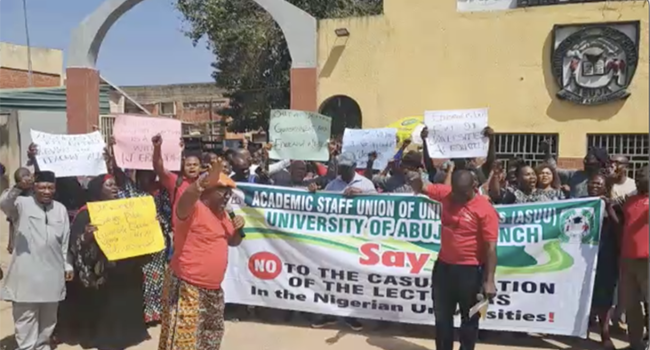Nigeria’s University Employees Strike Against Salary Holdback
University workers across Nigeria have launched a nationwide strike to protest against what they perceive as “unfair treatment” and delays in the payment of their salaries by the government.
The Senior Staff Association of Nigerian Universities (SSANU) and the Non-Academic Staff Union (Nasu) have taken a unified stand, citing the government’s failure to remit four months’ worth of dues that were withheld during an extensive strike in 2022.
The unions argue that while academic personnel have been compensated, their salaries have been unjustly withheld, reflecting a discrepancy in treatment by the government.
SSANU President, Mohammed Ibrahim, emphasized the severity of the situation during an interview with privately owned Channels Television on Monday. He stated that workers across various departments including registry, bursary, works and maintenance, security, and students’ affairs have withdrawn their services. As a result, administrative functions within public universities across Nigeria have ground to a halt, and this situation is expected to persist for the next seven days unless the government addresses their grievances.
Meanwhile, Minister for Education Prof Tahir Mamman stated to The Punch news website on Sunday that he was unaware of the strike, indicating a potential disconnect between the government and the grievances of university workers.
The strike action underscores the frustration and dissatisfaction among university workers regarding their treatment by the government, particularly concerning salary payments and compensation. It also highlights the broader issue of labor disputes within the Nigerian education sector, which has experienced periodic disruptions due to disagreements between workers’ unions and government authorities.
As the strike unfolds, it disrupts normal academic and administrative activities within Nigerian universities, impacting both students and staff members. The government’s response to these grievances will likely be closely scrutinized, with stakeholders monitoring developments to assess the resolution of the conflict and its implications for the education sector.


















